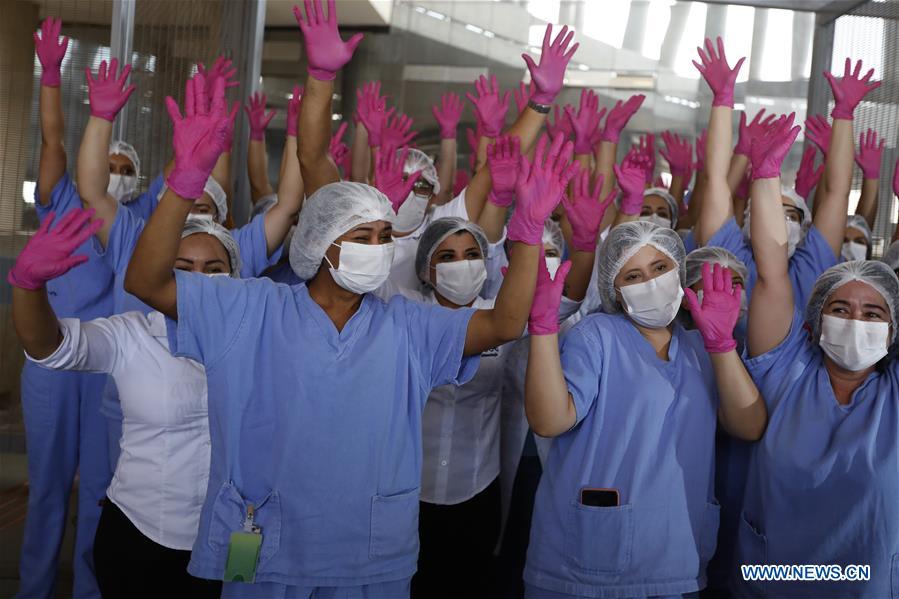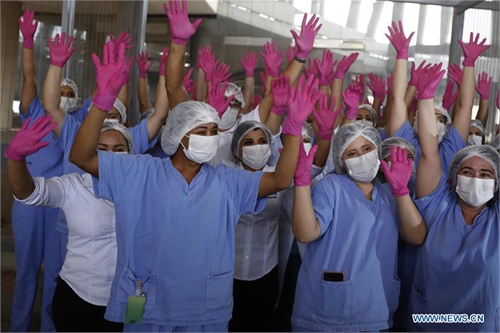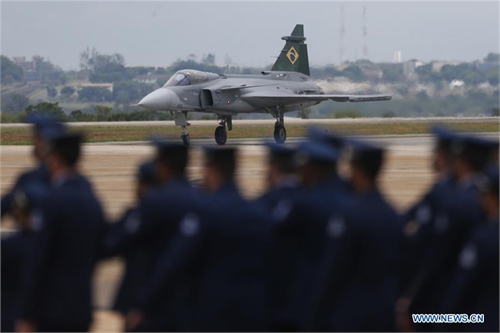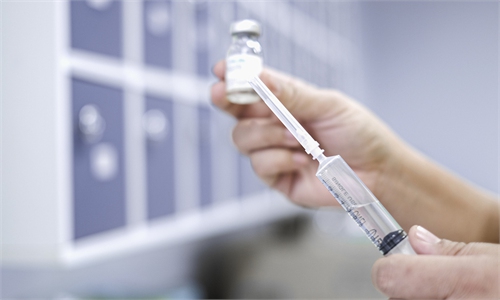
Health workers celebrate the closure of a temporary hospital at the National Stadium in Brasilia, Brazil, Oct. 15, 2020. The temporary hospital is closed on Thursday. Since its establishment on May. 22, the hospital has received more than 1,800 COVID-19 patients. Photo: Xinhua
Chinese experts warned of the sacrifice of Brazilian people's lives amid some Brazilian forces' politicization of the imports of China-developed COVID-19 vaccines, saying that these moves, which may be gestures to woo the US, would harm the South American nation's battle against the pandemic and, possibly, China-Brazil ties.
Brazilian health regulator Anvisa on Friday announced authorization for Sao Paulo's Butantan Institute biomedical center to import 6 million doses of a COVID-19 vaccine developed by Chinese company Sinovac Biotech, which is undergoing final clinical trials in Sao Paulo state, Reuters reported.
The announcement came one day after Brazilian President Jair Bolsonaro said that Brazil would not buy the Chinese vaccine, a comment that made worldwide headlines as Reuters, citing the Sao Paulo state governor, had just reported on Wednesday that the Brazilian government was set to include the Chinese vaccine in its national immunization program, having agreed to buy 46 million doses of the Sinovac vaccine.
Chinese experts said that the Brazilian president's move is mainly a result of the domestic political situation, and influence from the US could not be ruled out totally.
According to media reports, Bolsonaro has been battling with Sao Paulo Governor João Doria on anti-epidemic measurers on many issues, from mask wearing to vaccination, as he views the latter as a major competitor for his reelection in 2022.
"Bolsonaro is like Brazil's Donald Trump … someone who won the election unexpectedly but behaved unsatisfactorily during their term," Jiang Shixue, director of the Center for Latin American Studies at Shanghai University, told the Global Times on Sunday, noting that Bolsonaro's opposition to buying China-developed vaccines is mainly aimed at crushing a potential competitor.
Besides, the president also wants to cater to some of his ideological supporters who oppose the purchase, Jiang said.
China is taking the lead in COVID-19 vaccines research, with China-developed candidates proving their safety and efficacy during clinical trials and emergency use on tens of thousands of Chinese people. Brazil's refusal to purchase China-developed vaccines would leave it with fewer and less reliable options, Jiang noted.
Brazil reported the third-highest number of infections - 5,380,635 - as of Sunday, following the US and India, according to data from the John Hopkins University.
Jiang warned that politicizing the issue of vaccines would do no good to the country's anti-epidemic battle, and possibly also harm China-Brazil ties.
US Secretary of State Mike Pompeo warned on October 19 that the US and Brazil needed to reduce their dependence on imports from China for their own security.
In response to Pompeo's remarks, Chinese Foreign Ministry spokesman Zhao Lijian emphasized that China and Brazil are "comprehensive strategic partners."
Margaret Harris, spokesperson for the World Health Organization, said on October 23 that the entity would choose the best vaccine according to the standards of science, not by national origin.



